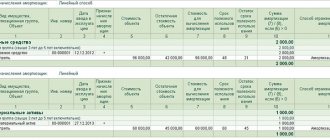Today, in an accounting educational program, Alexey Ivanov tells in simple human language how to calculate and pay the most complex Russian tax.
Hi all! Alexey Ivanov is with you, the knowledge director of the online accounting “My Business” and the author of the telegram channel “Accounting Translator”. Every Friday on our blog at The Clerk I talk about accounting. I started with the basics, then I will move on to more complex matters. For those who are just preparing to become an accountant, this will help them get to know the profession better. Seasoned chief accountants should look at familiar categories from a different angle.
From tax terminology we move on to specific taxes. Let's start with the most difficult thing - corporate income tax. This tax is paid only by legal entities. The object of taxation is the profit of a legal entity (Article 247 of the Tax Code of the Russian Federation), that is, the difference between its income and expenses. If income is higher than expenses, there is an obligation to pay income tax. The tax base is the monetary expression of profit (Article 274 of the Tax Code of the Russian Federation).
To determine the tax base, you will need to calculate income and expenses. To do this, you need tax accounting, which is required by Article 313 of the Tax Code of the Russian Federation. This is a complex system that not every accountant can handle. I will tell you general approaches to determining the tax base and the amount of tax, but this tax must be calculated by a professional .
Methods for recognizing income and expenses
Income and expenses can be recognized in one of two ways:
- accrual method;
- cash method.
By default, the accrual method is used. It implies that income and expenses are recognized when economic benefits change, regardless of when the money is received or paid. That is, approximately like in accounting. But there are exceptions. For example, dividends are included in income not at the time of accrual, but at the time of receipt to the current account. The specifics of using the accrual method are established in Articles 271 and 272 of the Tax Code of the Russian Federation.
Cash method is an option. It can be used by taxpayers whose revenue for the previous 4 quarters on average did not exceed 1 million rubles per quarter (Article 273 of the Tax Code of the Russian Federation). That is, it is intended for micro-businesses that for some reason do not use special tax regimes. Under the cash method, income and expenses are recognized when payments are made.
Property rental
This item of income, in accordance with the law, usually refers to non-operating income of the company. If they are taken into account by the taxpayer as income from sales, this means that the rental of premises (sublease) is the main or one of the main sources of cash receipts and is carried out on an ongoing basis. In the event of a one-time rental, financial income is classified as non-operating. At the same time, the legislation does not define the frequency of rentals to classify income into one or the second group. Therefore, each organization can decide independently which rules to follow for accounting for income received under rental agreements.
Income classification
Income for tax purposes is divided into three categories.
- Income from sales (Article 249 of the Tax Code of the Russian Federation).
- Non-operating income (Article 250 of the Tax Code of the Russian Federation).
- Income not subject to taxation (Article 251 of the Tax Code of the Russian Federation).
Income from sales
Sales income includes revenue from the sale of finished products, purchased goods, performance of work or provision of services. This also includes income from the sale of fixed assets, intangible assets, materials, accounts receivable and other property and property rights.
Non-operating income
Non-operating income may include:
- income from rental property if you are a landlord;
- income from equity participation in other organizations, if you purchase shares or shares in the authorized capital of other companies and receive dividends on them;
- income from the gratuitous receipt of property if you receive gifts or identify unaccounted surpluses during the inventory;
- interest receivable if you have bank deposits or lend money at interest;
- positive exchange rate differences if you buy currency cheaper than the Central Bank rate, sell it at a higher price, you have foreign currency assets and the Central Bank rate has increased, or you have foreign currency liabilities and the Central Bank rate has decreased;
- fines and penalties for violation of contract terms by your counterparties, accrued in your favor.
This is not a closed list - non-sales income includes any taxable income, except proceeds from sales.
Income not subject to taxation
Some receipts are not considered income for tax purposes. For example this:
- advances received from customers, unless you treat income and expenses on a cash basis;
- pledges and deposits received to secure transactions;
- received loans and borrowings;
- targeted funding, which you must spend strictly on the purposes specified by the funding party;
- contributions of founders to the authorized capital of your company;
- return of your contributions to the authorized capital of other companies.
What most of these amounts have in common is that they do not increase your economic benefits. In accounting, they are also not income. Although, if there are exceptions. For example, a gift from a controlling founder who has more than 50% of the authorized capital will not increase taxable profit. Therefore, to understand whether income is accepted for taxation, you need to carefully read Article 251 of the Tax Code of the Russian Federation. If the income is not directly mentioned there, it definitely falls under taxation.
Is income from the sale of property at auction a profit?
In the practice of arbitration managers, there are often situations when the book value of property is low, but it is sold at auction at the market price. At the same time, most creditors and managers do not even imagine what tax consequences for the bankruptcy estate and legal risks this situation entails. Arbitration practice on income tax from sales in bankruptcy until 2022 was limited to one judicial act in the Far Eastern District (resolution of the Arbitration Court of the Far Eastern District dated October 21, 2022 No. F03-4401/19 in case No. A51-17152/2017) and a refusal By the ruling of the Supreme Court of the Russian Federation of June 26, 2022 No. 303-ES19-10320 (5).
Judicial practice has shown that the legal conflict between tax legislation and bankruptcy legislation regarding the order of payments in the process of business bankruptcy often leads companies to an even greater debt load, which contradicts the very logic of insolvency. According to paragraph 63 of Art. 217 of the Tax Code of the Russian Federation, a taxpayer’s income from the sale of property subject to sale in the event of his being declared bankrupt and the introduction of a procedure for the sale of property in accordance with the legislation on insolvency (bankruptcy) is not subject to taxation. Moreover, if the situation with individuals has already been legislatively regulated by the aforementioned norm of the Code, then in proceedings regarding the payment of taxes by legal entities during bankruptcy, many unresolved issues remain. Tax authorities consider income from the sale of property at auction to be profit, which means, in their opinion, tax must be paid in advance.
In practice, this leads to the fact that after paying the tax, the debtor does not have enough money to pay off creditors. Debt in accordance with clause 62.1 of Art. 217 of the Tax Code may be considered hopeless (uncollectible), and creditors finally lose their money.
The conflict was identified by the lawyers of our panel during the bankruptcy process of Moskvichka OJSC (case No. A40-70249/19-46-79). The appointed arbitration manager sold a real estate property at auction, the book value of which, taking into account long-term depreciation, was 15 million rubles, for an amount of over 500 million rubles. However, even such an impressive amount was not enough to resolve debt issues with creditors in full. Independent auditors came to a consensus that the debtor, according to general rules, is obliged to pay income tax in the amount of 90 million rubles. in the current priority, of which the manager notified creditors in order to comply with tax laws.
According to independent auditors, accumulated losses in the form of illiquid debt purchased before the debtor’s bankruptcy and later written off receivables do not reduce income tax. The paradox of tax legislation, in our opinion, is that accounts receivable are not related to the sale of goods (work, services), and therefore cannot be taken into account when calculating income tax if written off. By the way, in most bankruptcy procedures, illiquid receivables acquired under assignment agreements constitute a significant share of the balance sheet assets. However, according to tax law, written-off receivables cannot always be taken into account when calculating accumulated losses.
The bankrupt company thus finds itself in a hopeless situation: having sold all the property, it is obliged to pay tax, although - according to the logic of bankruptcy and tax legislation - the sale amount should not be subject to income tax, since the sale took place without the purpose of commercial gain and under external arbitration management.
We have prepared a legal position for creditors to resolve disagreements with the authorized body regarding the order of payment of income tax, based not only on the rules of law, but also on the economic essence of this tax. Thus, profit characterizes the economic effect obtained as a result of the enterprise’s activities. At the same time, the procedure for bankruptcy proceedings (sale of property) involves the completion of the economic activities of the debtor enterprise, the formation of the bankruptcy estate, its sale and settlements with creditors.
The Constitutional Court of the Russian Federation (Resolution No. 12-P of December 19, 2005) has repeatedly pointed out the need to ensure a balance of rights and legitimate interests of persons participating in a bankruptcy case, since this is the public legal purpose of the institution of bankruptcy. However, the legislator did not clarify the issue of the order of payment with the state and the claims of creditors. The bankruptcy law does not relate to tax legislation and does not regulate the procedure for paying taxes, and the Tax Code, in turn, does not regulate the procedure for taxing income from the sale of property of legal entities. At the same time, the exhaustive list of income (Article 251 of the Code) not taken into account when determining the tax base does not include income from auctions during the bankruptcy process, so you will still have to pay tax.
But since law is inseparable from morality, let us recall that the law must guarantee equal performance by taxpayers of their duties without violating their constitutional rights, as well as the rights and legitimate interests of other persons. The collection of taxes to cover public expenses is associated with the state’s invasion of property rights, property rights, freedom of entrepreneurial activity, and thereby into the sphere of fundamental rights and freedoms of citizens and individuals.
According to the Tax Code, taxes and fees must have an economic basis and cannot be arbitrary; income tax is levied taking into account the amount of income and expenses incurred by the taxpayer while conducting business activities, the ultimate goal of which is to make a profit. It is important that income is recognized in the reporting (tax) period in which it was received, regardless of the actual receipt of funds, other property (work, services) and (or) property rights (accrual method), unless otherwise provided by other rules Art. 217 NK.
Declaring a debtor bankrupt means establishing the impossibility of fulfilling his obligations in the usual manner and fully satisfying all creditors' claims, including mandatory payments. In this regard, for bankruptcy proceedings, special rules are provided for the distribution of the debtor’s property (bankruptcy estate), including the order of satisfaction of the claims of all his creditors, who already felt the negative consequences after establishing a relationship with an unreliable borrower. The priority of creditors' claims established by bankruptcy legislation is aimed, in particular, at achieving a fair balance between the competing interests involved in bankruptcy cases. Bankruptcy procedures are of a public law nature and involve coercion of a minority of creditors by the majority. Accordingly, granting the state, represented by authorized bodies, as one of the debtor’s creditors, priority over other creditors seems unacceptable.
Based on the principles of good faith, reasonableness and fairness (clause 2 of Article 6 of the Civil Code of the Russian Federation), when the claims of creditors that arose before the introduction of bankruptcy proceedings against the debtor have not been repaid, the calculation and payment of current taxes associated with the sale of his property only lead to an increase accounts payable and do not meet the goals of bankruptcy proceedings aimed at the most complete repayment of claims, and also violate those enshrined in Art. 3 of the Tax Code are the main principles of taxation, such as the economic justification of taxation and the actual ability of the taxpayer to pay taxes.
In addition, taxation of income by virtue of Art. 41 of the Tax Code is possible provided that this income is recognized as the economic benefit of its recipient, while the sale of the debtor’s property within the framework of bankruptcy proceedings is carried out to generate funds and repay debts to creditors, which does not meet the criteria of the concept of income taken into account for tax purposes within the meaning of the Tax Code.
Based on the results of consideration of the arguments of the parties in a dispute with the authorized body, the Moscow Arbitration Court determined that the payment of income tax should be made at the expense of the debtor’s property remaining after satisfaction of the creditors’ claims. The appellate and cassation instances, in the absence of judicial practice, supported this position.
We also managed to achieve recognition of this approach within the framework of a dispute with similar factual circumstances in case No. A60-21121/2018 (determination of the Sverdlovsk Regional Court dated January 14, 2021).
A similar case is known in the Far Eastern District, the decision of which was made in a similar way. But in the dispute in case No. A40-30331/2018, in which the same position was independently used by the creditor from the previous two proceedings, the courts of two instances nevertheless decided on preferential payment of taxes before settling issues with creditors.
The further development of judicial practice on this issue will depend on the outcome of the consideration of the cassation appeal. One can also hope that the Supreme Court will take into account the special nature of income tax and will not formulate a practice similar to taxation issues regarding VAT and property tax of the debtor.
Classification of expenses
For tax purposes, expenses are considered to be documented and justified expenses of the taxpayer. This is what Article 252 of the Tax Code of the Russian Federation says. That is, the expense will reduce taxable profit only when:
- firstly, there is a primary document that confirms its implementation;
- secondly, you will be able to prove the economic justification of this expense. That is, to justify to the tax inspector that this expense is aimed at making a profit.
Like income, expenses for tax purposes are divided into three categories.
- Costs associated with production and sales (Article 253 of the Tax Code of the Russian Federation).
- Non-operating expenses (Article 265 of the Tax Code of the Russian Federation).
- Expenses not taken into account for tax purposes (Article 270 of the Tax Code of the Russian Federation).
Costs associated with production and sales
Costs associated with production and sales are grouped in different sections. For the first acquaintance with income tax, division by economic elements is best. This:
- material costs associated with the purchase of raw materials, supplies, components and goods;
- expenses for remuneration of personnel - salaries, bonuses and compensations established by labor and collective agreements;
- depreciation of fixed assets and intangible assets;
- and other costs associated with production and sales, for example, rental payments, entertainment and travel expenses.
Non-operating expenses
Non-operating expenses may include:
- legal costs if you are the plaintiff;
- cost of banking services;
- written off receivables if the debtor is liquidated or the statute of limitations has expired;
- interest accrued on loans and credits received;
- negative exchange rate differences if you buy currency at a higher price than the Central Bank rate, sell it cheaper, you have foreign currency assets and the Central Bank rate has decreased, or you have foreign currency liabilities and the Central Bank rate has increased;
- losses from natural disasters, fires, accidents and other emergencies.
Expenses not taken into account for tax purposes
A number of payments are not considered an expense for tax purposes. For example this:
- prepayments transferred to customers, unless you consider income and expenses on a cash basis;
- loans issued to other organizations and individuals;
- repaid loans and borrowings. This applies only to the principal amount - the so-called body of the loan or loan. Interest on them reduces taxable income;
- property transferred free of charge. It is not profitable to give gifts: the donor cannot reduce taxable income by the value of the gift, and the recipient is subject to income tax on its market value;
- dividends paid to the founders from profits;
- amounts in excess of normalized expenses. For example, entertainment expenses are accepted for taxation only within 4% of labor expenses for the same period.
The list of expenses not accepted for taxation in Article 270 of the Tax Code of the Russian Federation is closed, but it ends with a clause stating that expenses that are not documented or justified do not reduce taxable profit. It is important to remember this - tax authorities love to find fault with the economic justification of expenses.
Municipal property
Income from the sale of property that is municipal and received for economic management is not subject to taxation. This is due to the fact that the funds have already been transferred to the municipal budget.
In situations where property belongs to an enterprise on the basis of economic ownership, the possibilities for disposing of it are very limited and are prescribed in Civil Legislation. In particular, there is a ban on selling and leasing, using it as collateral, or contributing it as part of the authorized capital. These actions require permission from the owner.
If such property is sold, the taxpayer may reduce income by the cost of goods sold and property rights. When selling property that is subject to depreciation costs, accounting for income from the sale must be kept taking into account its possible adjustment (reduction) to the residual value of such property.
Example of tax base calculation
Let's look at an example of calculating the tax base. The income and expenses of Horns and Hooves LLC are presented in the table.
Taxable profit consists only of income and expenses accepted for taxation. This is 500 thousand rubles. revenue, 300 thousand rubles. accrued salary and 150 thousand rubles. material costs. 200 thousand rubles taken on credit, and 100 thousand rubles. prepayments transferred to suppliers do not affect the tax base.
Tax rates
In addition to the complicated procedure for determining the tax base, income tax is calculated at different tax rates for different incomes. The procedure is established by Article 284 of the Tax Code of the Russian Federation:
- 20% is the basic rate. It taxes most of your income minus related expenses.
- 0% applies, for example, to educational and medical institutions.
- 9% for interest on certain municipal securities.
- 10% - for the income of foreign organizations without permanent establishments in Russia, except for dividends.
- 13% - for Russian organizations that receive dividends.
- 15% - for foreign organizations that receive dividends.
- 30% - for some securities income.
Taxable period. Reporting periods. Deadlines for declaration and payment
The tax period for income tax is a year. The declaration is due by March 28 of the following year. The final tax amount for the year must be paid at the same time.
Reporting periods in accordance with Article 285 of the Tax Code of the Russian Federation can be determined by two methods. The taxpayer chooses the method that suits him best.
First option: reporting periods are the first quarter, half a year and nine months of the year. The advance payment in this case does not depend on the profit of the current quarter, but on the profit of previous quarters. Most taxpayers on this option pay monthly upfront payments, but some are only allowed to make quarterly payments. For example, this applies to organizations with average quarterly sales revenue for the last 4 quarters below 15 million rubles. For more details, see Article 286 of the Tax Code of the Russian Federation.
Second option: the reporting period is a month, two months, three months, and so on until the end of the year. In this case, the advance payment of the month depends on the actual profit of the reporting period.
In the first case, the declaration must be submitted quarterly - before the 28th day of the month following the quarter. In the second case, the declaration is submitted monthly until the 28th of the next month. The first method is more suitable for companies with stable income, the second - when income varies from month to month.
Monthly advance payments must be made by the 28th of each month. If you are only allowed to pay quarterly advance payments, they are paid by the 28th of the month following the quarter. This is what Article 287 of the Tax Code of the Russian Federation says.
An example of calculating an advance payment.
Horns and Hooves LLC pays monthly advance payments based on the actual profit received. In January, the profit amounted to 100 thousand rubles, in February - 200 thousand rubles.
Advance payment for January:
100 thousand rubles. * 20% = 20 thousand rubles.
Advance payment for January-February:
(200 thousand rubles + 100 thousand rubles) * 20% - 20 thousand rubles. = 40 thousand rubles.
The profit for the entire period amounted to 300 thousand rubles, and we paid exactly 20% of it or 60 thousand rubles in two advance payments. The final payment for the year will be the same.
When should income be taken into account under the simplified tax system?
In accordance with Art. 346.17 Tax Code of the Russian Federation
Income on the simplified tax system is accounted for on a cash basis, i.e. on the date:
- receipt of funds at the cash desk or bank account,
- obtaining property, works, services, property rights,
- repaying the counterparty's debt to the company in another way.
If the buyer pays you with a bill of exchange, consider the date of receipt of income as the day the bill is paid or the day it is transferred to a third party by endorsement.
When returning the advance to the buyer, reduce the income of the tax (reporting) period in which you return the advance.
Carrying forward losses
There is a cool feature in income tax. The loss received in previous years can be used to reduce the profit of the current year (Article 283 of the Tax Code of the Russian Federation). For example, if in 2022 there was a loss of 10 million rubles, and in 2021 a profit of 30 million rubles, then in 2022 the tax can only be paid on 20 million rubles. If your accountant doesn't do this, keep his bonus. It is only important to remember that by the end of 2021, due to the transferred losses of previous years, you can reduce the profit of the year by a maximum of 50%, and from 2022 - in full.




